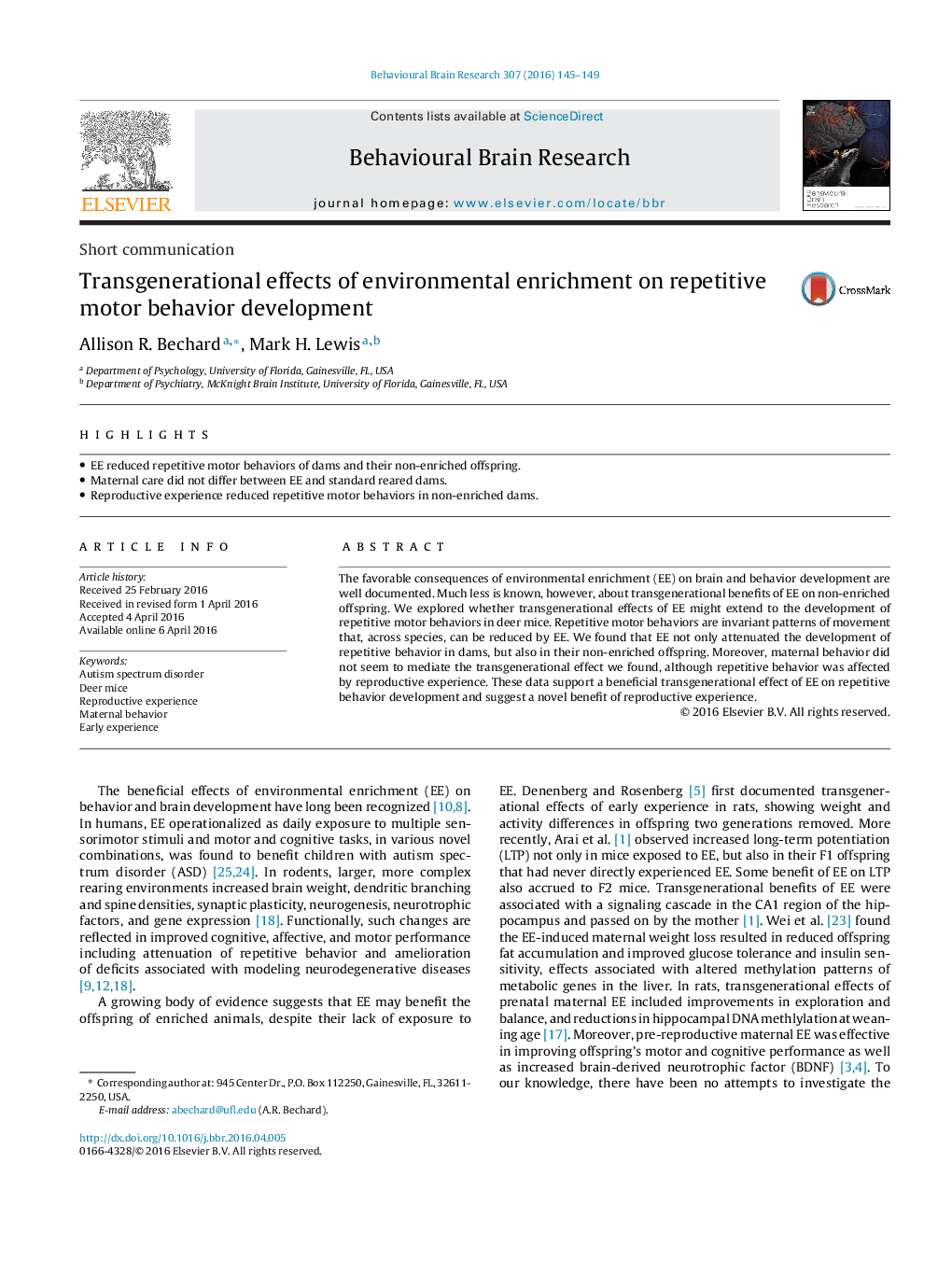| Article ID | Journal | Published Year | Pages | File Type |
|---|---|---|---|---|
| 4312276 | Behavioural Brain Research | 2016 | 5 Pages |
•EE reduced repetitive motor behaviors of dams and their non-enriched offspring.•Maternal care did not differ between EE and standard reared dams.•Reproductive experience reduced repetitive motor behaviors in non-enriched dams.
The favorable consequences of environmental enrichment (EE) on brain and behavior development are well documented. Much less is known, however, about transgenerational benefits of EE on non-enriched offspring. We explored whether transgenerational effects of EE might extend to the development of repetitive motor behaviors in deer mice. Repetitive motor behaviors are invariant patterns of movement that, across species, can be reduced by EE. We found that EE not only attenuated the development of repetitive behavior in dams, but also in their non-enriched offspring. Moreover, maternal behavior did not seem to mediate the transgenerational effect we found, although repetitive behavior was affected by reproductive experience. These data support a beneficial transgenerational effect of EE on repetitive behavior development and suggest a novel benefit of reproductive experience.
